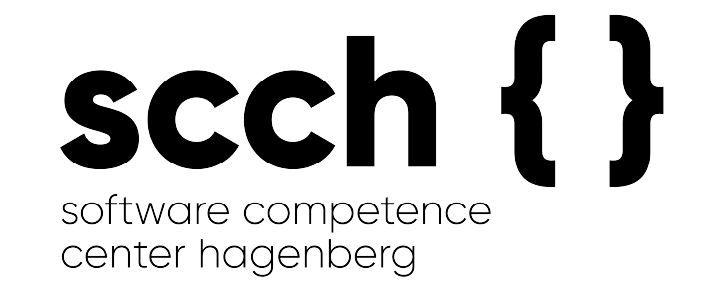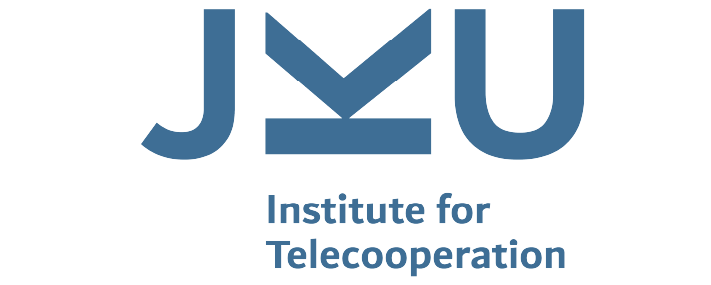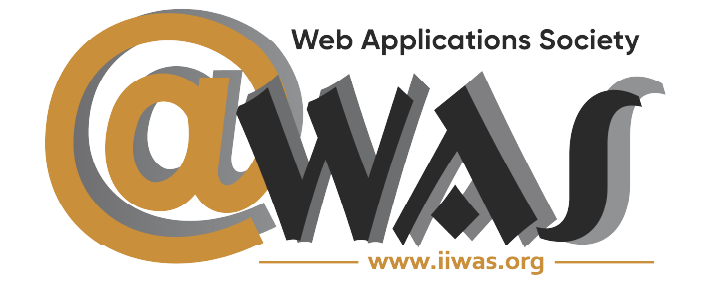DEXA 2024
The 35th International Conference on Database and Expert Systems Applications (DEXA 2024)
Papers submission: https://dexa2024.iiwas.org
IMPORTANT DATES
- Paper submission deadline: 7 April 2024 <<<FIRM & FINAL>>>
- Notification of acceptance: 10 May 2024
- Camera-ready copies due: before 10 June, 2024 (SHARP)
- Authors Registration deadline: Before 10 June 2024 (SHARP)
- Conference days: 26-28 August 2024
PUBLICATION
All accepted DEXA2024 papers will be published by Springer in their Lecture Notes in Computer Science (LNCS). LNCS volumes are indexed in Scopus; EI Engineering Index; Google Scholar; DBLP; etc. and submitted for indexing in the Conference Proceedings Citation Index (CPCI), part of Clarivate Analytics’ Web of Science. Selected high-quality papers, after revision and extension, will be invited to be published, in a special issue of Knowledge and Information Systems (KAIS), Springer (IF = 3.161) and Transactions of Large Scale Data and Knowledge Centered Systems (TLDKS), Springer
SCOPE
Database, information, and knowledge systems have always been a core subject of computer science. The ever increasing need to distribute, exchange, and integrate data, information, and knowledge has added further importance to this subject. Advances in the field will help facilitate new avenues of communication, to proliferate interdisciplinary discovery, and to drive innovation and commercial opportunity. Since 1990, DEXA has been an annual international conference which showcases state-of-the-art research activities in database, information, and knowledge systems. DEXA provides a forum to present research results and to examine advanced applications in the field. The conference and its associated workshops offer an opportunity for developers, scientists, and users to extensively discuss requirements, problems, and solutions in database, information, and knowledge systems.
DEXA 2024 invites research submissions on all topics related to database, information, and knowledge systems including, but not limited to the points in the list below. We also welcome survey papers, provided that the survey fills a void or goes beyond existing overview papers.
- Acquisition, Modelling, Management and Processing of Knowledge
- Authenticity, Privacy, Security, and Trust
- Availability, Reliability and Fault Tolerance
- Big Data Management and Analytics
- Consistency, Integrity, Quality of Data
- Constraint Modelling and Processing
- Cloud Computing and Database-as-a-Service
- Database Federation and Integration, Interoperability, Multi-Databases
- Data and Information Networks
- Data and Information Semantics
- Data Integration, Metadata Management, and Interoperability
- Data Structures and Data Management Algorithms
- Database and Information System Architecture and Performance
- Data Streams, and Sensor Data
- Data Warehousing
- Decision Support Systems and Their Applications
- Dependability, Reliability and Fault Tolerance
- Digital Libraries, and Multimedia Databases
- Distributed, Parallel, P2P, Grid, and Cloud Databases
- Graph Databases
- Incomplete and Uncertain Data
- Information Retrieval
- Information and Database Systems and Their Applications
- Intelligent User Interfaces
- Knowledge Representation and Knowledge Graphs
- Machine and Deep Learning
- Mobile, Pervasive and Ubiquitous
- Data Modelling, Automation and Optimisation of Processes
- Natural Language Processing
- NoSQL and NewSQL Databases
- Object, Object-Relational, and Deductive Databases
- Process Mining
- Provenance of Data and Information
- Semantic Web and Ontologies
- Social Networks, Social Web, Graph, and Personal Information Management
- Statistical and Scientific Databases
- Temporal, Spatial, and High Dimensional Databases
- Query Processing and Transaction Management
- User Interfaces to Databases and Information Systems
- Visual Data Analytics, Data Mining, and Knowledge Discovery
- WWW and Databases, Web Services
- Workflow Management and Databases
- XML and Semi-structured Data
SUBMISSION GUIDELINES
Authors are invited to electronically submit original research contributions or experience reports in English. DEXA will accept submissions of both short (up to 6 pages) and full papers (up to 15 pages including references and appendixes). DEXA reserves the right to accept submitted full papers only as short papers, in which papers describe interesting and innovative ideas which still require further technical development.
Any submission that significantly exceeds length limits or deviates from formatting requirements may be rejected without review.
SUBMISSION PROCEDURE
Authors should first consult Springer’s authors’ instructions and use the proceedings templates, either for LaTeX or for Word, for the preparation of their papers.
Papers submission will be managed using HotCRP. To submit a paper, create an account at (https://dexa2024.iiwas.org) or sign in if you already have an account. To create an account, you only need to enter a valid email address. You will receive an email with a link to change the password and fill in your name, affiliation, etc., You can start the submission process by clicking on "new submission".
IMPORTANT!! : We strongly advise using an official email address. If you're using public email services like Gmail, Yahoo, Outlook, etc., please make sure to add (dexa2024@iiwas.org) to your contacts before registering. If you encounter any issues, please reach out to (dexa2024@iiwas.org).
REVIEW PROCESS
Submitted papers will be carefully evaluated based on originality, significance, technical soundness, and clarity of exposition.
Duplicate submissions are not allowed and will be rejected immediately without further review.
Authors are expected to agree to the following terms: "I understand that the submission must not overlap substantially with any other paper that I am a co-author of or that is currently submitted elsewhere. Furthermore, previously published papers with any overlap are cited prominently in this submission."
Questions about this policy or how it applies to a specific paper should be directed to the PC Co-chairs.
ACCEPTED PAPERS
All accepted conference papers will be published in a volume of "Lecture Notes in Computer Science" (LNCS) by Springer Verlag. Authors of all accepted papers must sign a Springer copyright release form. Papers are accepted with the understanding that at least one author will register for the conference to present the paper. Authors of selected papers presented at the conference will be invited to submit extended versions of their papers for publication in Knowledge and Information Systems (KAIS), Springer (IF = 3.161) and Transactions of Large Scale Data and Knowledge Centered Systems (TLDKS), Springer. The submitted extended versions will undergo a further review process.
• Christine Strauss, University of Vienna, Austria
• Toshiyuki Amagasa, University of Tsukuba, Japan
• Giuseppe Manco, Italian National Research Council (CNR), Italy
• A Min Tjoa, Vienna University of Technology, Austria
• Abdessamad Imine, Loria, France
• Allel Hadjali, LIAS/ENSMA, France
• Andreas Ekelhart, Secure Business Austria, Austria
• Anne Kayem, University of Exeter, UK
• Athman Bouguettaya, The University of Sydney, Australia
• Bala Srinivasan, Monash University, Australia
• Bettina Fazzinga, DICES, University of Calabria, Italy
• Brahim Ouhbi, ENSAM, Marocco
• Cedric Du Mouza, CNAM, France
• Christian Stummer, Bielefeld University, Germany
• Chuan-Ming Liu, National Taipei University of Technology, Taiwan
• Claudia Roncancio, Grenoble University, France
• Daisuke Kitayama, Kogakuin University, Japan
• Deborah Dahl, Conversational Technologies, USA
• Elio Masciari, Federico II University, Italy
• Elmar Kiesling, Vienna University of Economics and Business, Austria
• Ettore Ritacco, University of Udine, Italy
• Flavio Ferrarotti, Software Competence Centre Hagenberg, Austria
• Flavius Frasincar, Erasmus University Rotterdam, The Netherland
• Florence Sedes, IRIT, University Toulouse III Paul Sabatier, France
• Francesc D. Muñoz-Escoí, Universitat Politècnica de València, Spain
• Franck Morvan, IRIT - Universit Paul Sabatier, France
• Gheorghe Cosmin Silaghi, Babes-Bolyai University, Romania
• Giovanna Guerrini, DIBRIS- University of Genova, Italy
• Hamidah Ibrahim, Universiti Putra Malaysia, Malaysia
• Hiroyuki Toda, Yokohama City University, Japan, Poland
• Idir Amine Amarouche, USTHB, Algeria
• Iker Pastor-Lópezm, University of Deusto, Spain
• Ionut Iacob, Georgia Southern University, USA
• Ismael Navas-Delgado, University of Mlaga, Spain
• Ivan Izonin, Lviv Polytechnic National University, Ukraine
• Ivanna Dronyuk, Jan Dlugosz University, Poland
• Javier Nieves, Azterlan, Spain
• Jérôme Darmont, Université Lyon 2, France
• Jianwei Zhang, Iwate University, Japan
• Jorge Lloret, University of Zaragoza, Spain
• Josef Küng, Johannes Kepler Universitaet Linz, Austria
• Jun Miyazaki, Tokyo Institute of Technology, Japan
• Karim Benouaret, Université Claude Bernard Lyon 1, France
• Lars Moench, University of Hagen, Germany
• Lenka Lhotska, CVUT, Czech Republic
• Louise Parkin, LIAS, France
• Luca Caviglione, IMATI-CNR, France
• Manfred Hauswirth, TU Berlin, Germany
• Manolis Gergatsoulis, Ionian University, Greece
• Marcin Paprzycki, IBS PAN and WSM, Poland
• Marcin Skowron, Deepsearch GmbH, Austria
• Marinette Savonnet, University of Burgundy, France
• Markus Endres, University of Passau, Germany
• Massimo Ruffolo, ICAR-CNR, Italy
• Massimo Guarascio, ICAR-CNR, Italy
• Michael Sheng, Macquarie University, Australia
• Michal Kratky, VSB-Technical University of Ostrava, Czech Republic
• Mizuho Iwaihara, Waseda University, Japan
• Mustafa Atay, Winston-Salem State University, USA
• Nora Faci, Université Lyon 1, France
• Olivier Teste, IRIT, France
• Omar Boussaid, ERIC Laboratory, France
• Pablo García Bringas, University of Deusto, Spain
• Pavlo Radiuk, Khmelnytskyi National University, Ukraine
• Peiquan Jin, University of Science and Technology of China, China
• Petr Kremen, Czech Technical University in Prague, Czech Republic
• Qiang Ma, Kyoto University, Japan
• Qiang Zhu, University of Michigan - Dearborn, USA
• Rachid Anane, Coventry University, UK
• Riad Mokadem, Paul Sabatier university, France
• Riccardo Albertoni, CNR-IMATI, Italy
• Sergio Ilarri, University of Zaragoza, Spain
• Sven Hartmann, Clausthal University of Technology, Germany
• Sven Groppe, University of Luebeck, Germany
• Traian Marius Truta, Northern Kentucky University, USA
• Vicenc Torra, University Skövde, Sweden
• Vincenzo Deufemia, University of Salerno, Italy
• Vitaliy Yakovyna, Lviv Polytechnic National University, Ukraine
• Wilfrid Utz, OMiLAB gGmbH, Germany
• Yan Zhu, Southwest Jiaotong University, China
• Yang-Sae Moon, Kangwon National University, South Korea
• Yousuke Watanabe, Nagoya University, Japan





